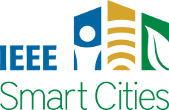Steering Committee
The Steering Committee decides on the priorities and manages the general course of its operations.
The Steering Committee’s responsibilities include:
- Work with the Project Manager to provide leadership to the Initiative and keep the effort moving forward on schedule
- Provide strategic directions and development of goals and guidance for product development
- Participation at quarterly meetings via conference call with one being an annual face-to-face meeting. The Annual Meeting location is proposed by the Project Manager and Chair, and voted upon by the Committee
- Recruitment of new volunteers to participate in various committees
The IEEE Smart Cities Steering Committee is comprised of a Chair and at least one (1) member from each partner organizational unit.
A partner organizational unit is any IEEE society or organizational unit that agrees to encourage the exchange and dissemination of technical information and promote understanding and cooperation among the individual participants in the IEEE Smart Cities with IEEE Smart Cities organizational unit members.
The Steering Committee nominates a Chair for approval by the IEEE PES President for a one (1) year term which can be renewed up to three (3) years.
Currently, there are 6 IEEE Partner Organizational Units with representation on the IEEE Smart Cities Steering Committee:
- IEEE Communications Society
- IEEE Control Systems Society
- IEEE Industry Applications Society
- IEEE Power & Energy Society
- IEEE Systems, Man, and Cybernetics Society
- Council on Electronic Automation Design
The cross-discipline coordination across IEEE uniquely positions IEEE Smart Cities to accelerate successful implementation of Smart Cities throughout the world. Each partner organizational unit member will represent their respective organizational unit and attract as many interested members as possible to help achieve the goals of the Initiative.

